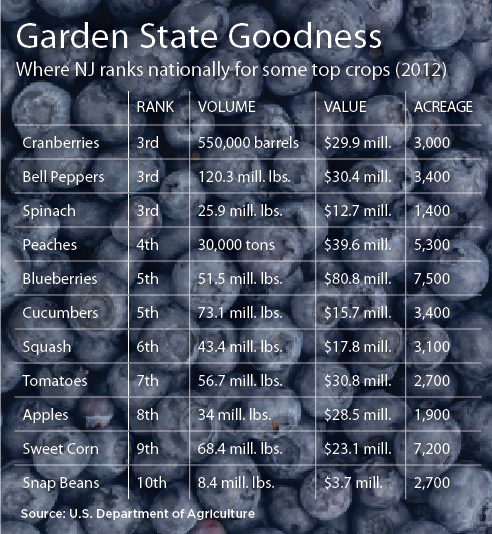
Despite being called the Garden State, New Jersey doesn’t get a lot of attention for its terrific fruit, vegetables, meat, poultry, cheese, wine and other farm-based products.
One man who knows what makes New Jersey farming special is state Secretary of Agriculture Doug Fisher, a lifelong rural Jersey resident with a 30-year career as a supermarket owner and operator. Working with Governor Chris Christie, Fisher oversees a state policy that promotes agribusiness, encourages agricultural education and seeks to preserve farmland.
I spoke with Fisher about recent developments in New Jersey agriculture.
What are the key issues facing New Jersey farmers?
The biggest challenge is getting available land. Land costs are expensive in New Jersey and anyone starting out in the business must have a place to grow their crops. They can get lease agreements, [but] sometimes they are at the whim of the landowner changing his or her mind on how the land will be used.
How does someone get started in farming?
It takes years to learn how to farm. There are a whole host of folks who can help [aspiring farmers] get started. You can, however, start very small. If it is something you have a passion for, you may start with having beehives and develop distribution. Or you may have an interest in growing herbs or flowers. As a student, one could enroll in an agricultural education program and Future Farmers of America at their high school.
What is meant by artisan farming?
Simply that whatever the farmer may produce then becomes a product that can be fashioned into something else…. For instance, a farmer may have cows and decide to use the milk to make a more nuanced variety of cheese that is targeted to have special properties. It becomes a whole other aspect of what they do. There is fashion in everything. There is fashion in food.
What new areas of farming have emerged?
One area is ethnic specialties. There are certain crops that only one particular ethnic group is looking for and purchasing, but then it spreads to a wider variety of folks…. It can be herbs that weren’t grown before in New Jersey, but are now. For instance, there is the Peppadew, which is a sweet pepper that was originally grown in South Africa. Someone brought it to New Jersey and now we are the North American headquarters for the Peppadew, which is carried by many retail outlets and restaurants.
What are some other hot segments of the business?
Nutraceuticals have really taken off, which are herbs and other plants that are being grown for their health benefits. The blueberry and cranberry are two fruits which are highly sought after for their antioxidants, and New Jersey is right in the front of this market in researching the ever-increasing uses of these fruits. Wine is another big trend, as we have close to 50 vineyards that are producing highly prized varieties of grapes.
Are there any diminishing areas?
At one time New Jersey was the leader in dairy, with over 3,000 herds. Now we only have 85, which equates to about 9,000 cows. We also were huge into growing potatoes in the middle part of the state, and that is no longer the case. Other commodities take their place, such as soy beans. Many people do not know we are well-regarded for our soy bean crops, and there has been talk of branding them as Jersey Fresh.
How important is Community Supported Agriculture?
That is an upcoming trend as well….In a CSA, a group of people pledge to support a farm operation in advance of the growing season. In return, they receive shares of the farm’s bounty throughout the season. While every CSA operates slightly differently, customers buy specific size shares and pick up their produce at the farm on a regular basis or it is delivered directly to the end-user.
